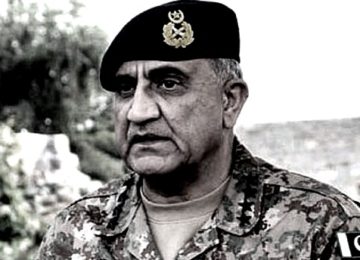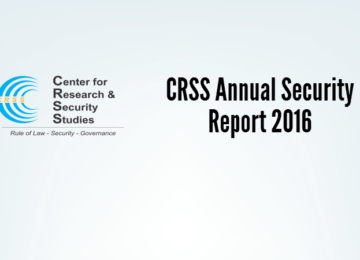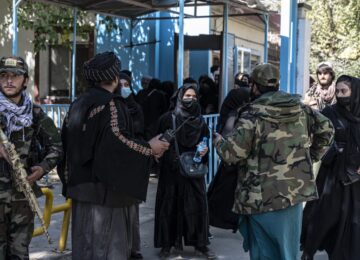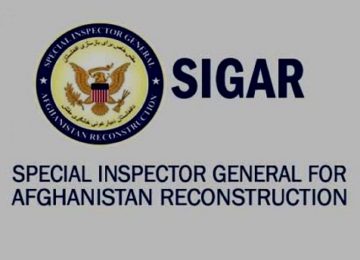31 January was the deadline for victims of Afghan war crimes to share their experiences and opinions with the International Criminal Court (ICC). Based on information so far released by the ICC, the Court has received 345 representations on behalf of more than seven hundred thousand victims. These representations are important as they will factor in to the ICC’s assessment about whether prosecuting war crimes and crimes against humanity that have been committed in Afghanistan over the past 15 years is in the interests of justice. While those submissions may be enough, says AAN’s Ehsan Qaane (with input from Kate Clark), to convince the ICC that launching a full investigation is in the interests of justice, the ICC’s call for victim statements revealed worrying failures in its capacity for outreach and communication in Afghanistan.
Why do victims’ experiences and opinions matter for the ICC?
On 20 November 2017, Fatou Bensouda, the ICC Prosecutor, announced that she had requested the judges of the Pre-Trial Chamber to authorise a full investigation into war crimes and crimes against humanity committed in Afghanistan since May 2003, ie from when the ICC gained jurisdiction in Afghanistan (see AAN’s previous report). Based on the Court’s regulations, victims normally have 30 days to submit their “representations”, ie their “views and concerns” to the Court (see regulation 50 of the ICC Regulations). Referring to the insecurity and the complexity of the situation in Afghanistan, the ICC Victims Participation and Reparation Section, which is responsible for receiving the representations asked for an extension of 42 days. The ICC Pre-Trial Chamber agreed to an extension, but only until 31 January. That deadline was passed last week.
The victims’ representations are important for when the ICC decides if prosecutions are in the interest of justice. So far, the ICC prosecutor has sought to show that crimes meeting the ICC threshold have been committed in Afghanistan and that the Afghan and United States governments have been neither willing nor able to prosecute these crimes (AAN’s report here). For the ICC to move to a full investigation and thereafter prosecution, the Pre-Trial Chamber needs to be convinced not only by the prosecutor’s submission, but also that opening a full investigation would be in the interest of justice (ICC statute, art. 53 and art 15). According to the ICC’s Policy Paper on Victims’ Participation, developed by the Office of the Prosecutor in 2010, the “interests of justice” means the “interests of victims.” Consequently, for the Court, it is not so important how many victims agree with prosecutions, but it would be important if many victims said that they did not want them.
The ICC Registry published a form – in Dari, Pashto, English and Arabic – on which victims’ representations could be submitted. It had 12 questions focusing on identifying victims and the harm they had suffered. The victims were also asked if they agreed or disagreed with an ICC investigation, ie if they believed an ICC prosecution was in the interests of justice or not.
What is known about the victims’ representations?
According to information on the ICC’s website (link now removed), the ICC Registry has submitted six tranches of victims representations to the ICC Pre-Trial Chamber. Five have been posted in redacted form: on 7 and 21 December 2017, 11 January and 2 and 5 February 2018. The ICC has received 345 representation forms in total, on behalf of slightly more than seven hundred thousand victims (715,015). They were in Dari, Pashto, English and Arabic. From all these victims representations, just two families, comprising 20 victims, and 30 other individuals said they did not want an investigation. (1)
The ICC has not released the content of these submissions or the identity of the victims or their representatives; such information might jeopardise their security. However, it said that both individual and collective representations were submitted, including one from an organisation saying it represented “more than five hundred thousand” potential victims of Rome Statute crimes. (2)
Over the past month, a handful of those submitting representations have chosen to speak to the media. They may or may not be typical. They include:
* Mujib Khelwatgar, the chairperson of Nai, Supporting Open Media in Afghanistan, said at a press conference on 22 January 2018 that his organisation had reported to the ICC about the murder of 48 journalists and the injuring, kidnapping and threatening of 142 others by the Islamic State for Khorasan Province (ISKP), the Taleban, including the Haqqani network (see here).
* Fatima, speaking to the BBC, said she had submitted a representation about her mother, a cook at an orphanage in Kabul who was killed in a Taleban suicide bombing in July 2017. The BBC also reported that Ahmad Eshchi, governor of Jawzjan in the 1990s (more about him here) had submitted a representation accusing First Vice-President General Abdul Rashid Dostum, of detaining him in December 2016 and ordering nine bodyguards to torture and sexually assault him. (A court in Kabul sentenced seven of the bodyguards to 8 years in prison in November 2017, but no case has been filed against Dostum in any court.)
* The British legal campaign group Reprieve told AAN that it had submitted representations on behalf of three clients: Pakistani Ahmad Rabbani and Yemeni Khaled Qassim were both detained and allegedly tortured by the CIA in Afghanistan before being rendered to Guantanamo (where they remain) and Pakistani Yunis Rahmatullah who was detained by British forces in Iraq and transferred to the US military, which transferred him to Bagram, Afghanistan, (in breach of an agreement with the UK) where he was then held for a further ten years. Reprieve also submitted a representation concerning US drone strikes in Pakistan, arguing that the US treated both it and Afghanistan as one conflict zone (and therefore it was covered by the ICC investigation) and that the US had illegally killed civilians.
* A man from Helmand (who did not want to be named) told AAN he had sent his representation to the ICC on the day of the deadline, 31 January 2018. He alleged that, in 2004, he had been detained and tortured for nine days by the then provincial governor of Helmand, Sher Muhammad Akhundzada (for his bio see here) and that one year before, the governor’s guards had killed one of his cousins and injured one of his brothers while they attended a peaceful protest against the government’s anti-narcotics policy in Helmand.(3) “Afghan investigators,” he said, “had not even registered my complaint.”
The ICC will need to decide whether the representations submitted are crimes over which the ICC has jurisdiction, ie war crimes, crimes against humanity, genocide and crimes of aggression and that they meet the ICC’s ‘gravity threshold’. (4)
Was the ICC’s communication and outreach sufficient?
Afghans have had more time than most nationalities to submit representations. The ICC Pre-Trial Chamber agreed to double the normal period given to 72 days. However, that is still very short for a country where information about the ICC has been scarce, where there is an ongoing conflict that hampers access to many of the areas where war crimes have occurred, where many people are illiterate, do not have internet or electricity and – for good reasons – have learnt to be careful about the information they share.
The ICC does not have a field office in Afghanistan through which it could have communicated directly with media, victims and other stakeholders. According to its website, its Registry trained some Afghan civil society activists and through them contacted victims. The actions of these individuals appear to have been crucial for enabling many victims to submit forms (see footnote 1). As to other outreach, from the date of the Prosecutor’s announcement to the deadline for the collection of victims’ representations forms, the ICC communicated with Afghan journalists just twice, both times in the form of press releases. On 20 November 2017, the Prosecutor announced her request to open a full investigation into the situation in Afghanistan and on 19 January 2018 emphasised to journalists that the ICC was ready to answer any questions they might have (AAN was also emailed both press releases by the ICC).
Some Afghan and international media, mostly print and online newspapers, did report Bensouda’s November 2017 request for a full investigation and the ICC’s call for victims’ representations (for example, here and here). However, victims who are illiterate and live in remote areas had no access to these reports. For example, the author, attending a training session for war victims in Herat, one of the four largest cities after Kabul, found that none of the 11 victim trainees, who were from Herat, Farah and Ghor provinces, had heard of the ICC or knew of the Prosecutor’s announcement.
Moreover, among most Afghan war victims, it is common to feel that if they take any step against perpetrators, they will not see justice, but also their safety will be jeopardised. In the case of the ICC, victims feared the perpetrators might be able to access the representation forms and bring further harm to them. That fear made outreach by the ICC particularly crucial; it needed to explain to Afghans what the ICC is, what it is doing and, crucially, that it assures confidentiality for victims.
Those trying to help victims have described facing many difficulties in helping victims to make representations, some of them a product of ICC failures to communicate its mission. Aziz Rafiee, for example, the head of Afghanistan Civil Society Forum and a member of the Transitional Justice Coordination Group, whose organisation helped victims in the north of the country to fill out and submit their representations to the ICC, told AAN on 31 January 2018: “Some of the victims did not trust the ICC because they had not heard of it and did not know what it was.”
Difficulties were not just to do with poor communications however; the exceptionally tight time constraint also exacerbated other problems. Homaira Rasuly, chairwoman of an NGO working for women’s rights, Medica Afghanistan, who also works with a group of lawyers, told AAN that her organisation had sent a letter to the ICC on 28 January, requesting an extension of the deadline to 28 February 2018. The ICC replied that this was not possible. Yet, Rasuly argued, women victims are a vulnerable group who were facing additional troubles submitting representations; they often lack access to the internet and cannot go out of their homes without an accompanying male relatives. That means, Rasuly said, “They need support [to make representations] from people like us who can go to their homes. However, in December and January traveling to the remote areas is difficult as the roads are closed by snow.” She told AAN that she understood that few of the victims who had submitted representations to the ICC were women.
What happens next?
The judges of the Pre-Trial Chamber, based on the information provided by the Prosecutor (5) and the victims representations, now have to decide whether to authorise a full investigation into war crimes and crimes against humanity in Afghanistan. The Prosecutor had said in November 2016 that there was a “reasonable basis to believe” that the US military, CIA and government forces had committed the war crime of torture and that the Taleban, including the Haqqani network, had committed a range of war crimes and crimes against humanity, including murder, intentionally directing attacks against the civilian population, humanitarian personnel and protected objects; conscripting children and killing or wounding treacherously a combatant adversary. It also appears that ISKP may be added to those who could be investigated (see footnote 5).
If authorisation for an investigation is given, the Prosecutor will then have to decide which specific individuals the ICC will make cases against. In the period of investigation, victims may also share their representations in more detail and, if asked by the Prosecutor, provide evidence and documents. The investigation would not be limited to those who have recently made representations.
Providing an opportunity to victims to share their views with the ICC in the pre-trail stage should be the first step to engaging victims in the judicial proceedings of the ICC. Early engagement of victims can contribute a sense of ownership of the proceedings to victims. This is particularly important in Afghanistan as the ICC, its rules and its headquarters in The Hague remain unknown for most citizens. Yet, until the ICC Prosecutor sent her request to open an investigation into the situation in Afghanistan to the ICC pre-trail chamber, the ICC had mainly engaged with the Afghan government (AAN’s dispatch on the ICC-Afghanistan communications). The past couple of months’ efforts by the ICC to collect victims’ representations is the first time the Court has sought to engage directly with Afghan media, civil society and public.
The fact that at least 345 representations on behalf of more than seven hundred thousand victims were sent to the Court by the deadline does show that there is an interest in ICC proceedings in Afghanistan – and that Afghans do not want to forget the crimes that have been committed in Afghanistan. Also, the fact that, at least in the submissions we know about, only 50 individuals have said they did not want an investigation should help to convince the Pre-Trial Chamber that an investigation would be in the interests of justice.
At the same time, the ICC’s very limited outreach to media and through civil society organisations to victims does raise concerns about the Court’s understanding of how to work in Afghanistan and what is needed to engage with victims, especially in the conflict-ridden areas of the country. Should the Pre-Trial Chamber decide that the Prosecutor can open a full investigation, the ICC will need to learn from this first exercise and commit many more resources and thought to communication and outreach.
Edited Sari Kouvo and Kate Clark
(1) Five out of the six submissions have been reported:
165 victims representation forms submitted on behalf of 211,925 victims, including 787 families and 26 villages. 114 out of 165 were sent via email and 51 were submitted online. 136 representation forms were collective (language breakdown not given).
One individual representation and nine collective representations, submitted on behalf of a total of 29 individuals, said they did not want an investigation.
138 victim representation forms submitted on behalf of approximately 501,306 victims and 94 families. 64 online and 74 were collected and sent via email, the majority of them by interlocutors that the Victims Participation and Reparations Section (VPRS) had previously met during its information and training sessions. 80 were collective. 34 forms were submitted in English, 45 in Dari, 2 in Pashto and 57 in Dari, together with English translations.
One family of six requested no investigation.
28 victim representation forms submitted on behalf of approximately 350 victims, seven online and 21 collected and sent via email by civil society representatives. 23 were collective. Three forms were submitted in English, three in Pashto, one in Dari and 21 in Dari or Pashto together with English translations.
One family of 14 requested no investigation.
Seven victim representation forms were submitted on behalf of 1031 victims, six online and one sent by email. Four were collective. Six were in English and one in Arabic.
All requested investigations
Five victim representation forms submitted online on behalf of a total of 514 victims. Four were collective. Two forms were submitted in English, one in Dari and two in Pashto.
All requested investigations.
(2) As regards the representations, the ICC Registry has noted that the information provided is, as yet, insufficient to give the exact number of victims. However, it does consider it sufficient for a preliminary assessment to find out if those represented are victims according to the definition of victims provided in Rule 85 of the Rules of Procedure and Evidence of the ICC (see here). After this assessment, the number of ‘victims’ may be fewer.
(3) The Helmandi a former investigator, said he met former Afghan Attorney General, Ishaq Aloko, and submitted his complaint to him. He said Aloko told him that he could not investigate such a powerful man. In December 2017, he met the current attorney general of Afghanistan, Farid Hamidi, who was his former colleague at the Afghanistan Independent Human Rights Commission before he was appointed as the Attorney General, and gave him his complaint letter. Hamidi’s legal advisors told him his case was barred by the statute of limitations based on current Criminal Code and Criminal Procedure Code (ie no criminal acts can be investigated ten years after they were allegedly committed).
(4) When examining the gravity of crimes, the Prosecutor looks into “the scale, nature, manner of the commission of the crimes, and their impact.” For a better understanding of the gravity threshold the example of the Prosecutor’s decision not to investigate the ‘flotilla case’ is useful. On May 31, 2010, the Israeli Defense Forces intercepted a humanitarian flotilla of eight boats en route to the Gaza Strip. In the course of boarding and taking control of the vessels, the IDF killed ten people and injured approximately fifty. The Prosecutor said it did not pass the gravity threshold.
(5) Another order from the Pre-Trial Chamber, preparatory to its decision whether or not to launch a full investigation, was made on 5 February. It called on the Prosecutor to provide additional supporting materials, noting gaps in the materials already provided with respect to the structure, organization, and conduct of Afghan Forces, the structure and organization of the Islamic State operating in Afghanistan, and the structure, interrogation policies, and conduct of US forces. The material requested from the Office of the Prosecutor was as follows:
- Any publicly available report from the United Nations Assistance Mission in Afghanistan (“UNAMA”) on the treatment of detainees, apart from the reports from 2011, 2013, 2015 and 2017 already submitted;
- “Any publicly available report from the Afghanistan Independent Human Rights Commission (“AIHRC”) on torture, apart from the report from 2012 already submitted;
- The United Nations (“UN”) Secretary-General reports to the General Assembly on the topic: “The situation in Afghanistan and its implications for international peace and security”, from the years 2003, 2004, 2010, 2013, 2014, 2015, and 2017;
- Any publicly available report from the UN Secretary-General to the General Assembly on the topic “Children and armed conflict in Afghanistan”, apart from the report from 2008 already submitted;
- Further clarification and information, to the extent possible, about the structure and organisation of the Islamic State operating in Afghanistan; and
- Further clarification and information, to the extent possible, about the structure of the US forces for the time period after 2008; for the interrogation policies of the US forces for the time period after 2006; as well as for the conduct of the US forces for the time period after 2011.
There are tight deadlines for this: the Pre-Trial Chamber wants information about points 1-4 submitted by 9 February ad that for points 5 and 6 by 12 February.
By Special Arrangement with AAN. Original link.
Disclaimer: Views expressed on this blog are not necessarily endorsed or supported by the Center for Research and Security Studies, Islamabad.








